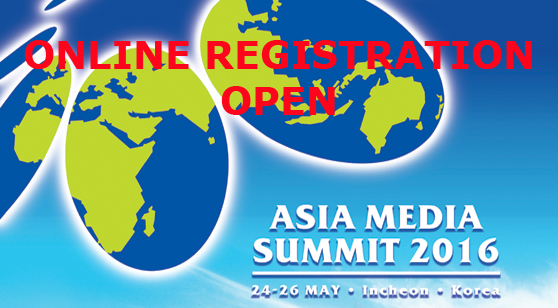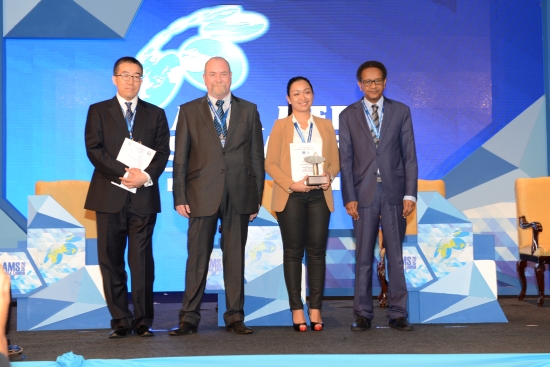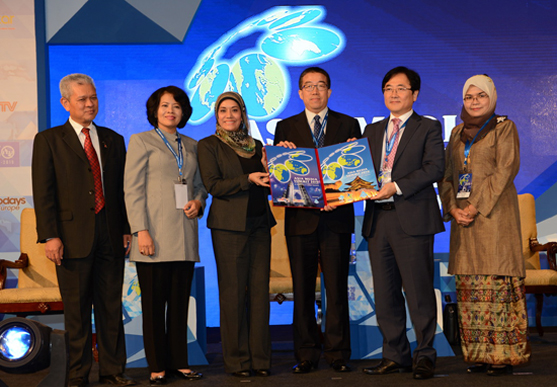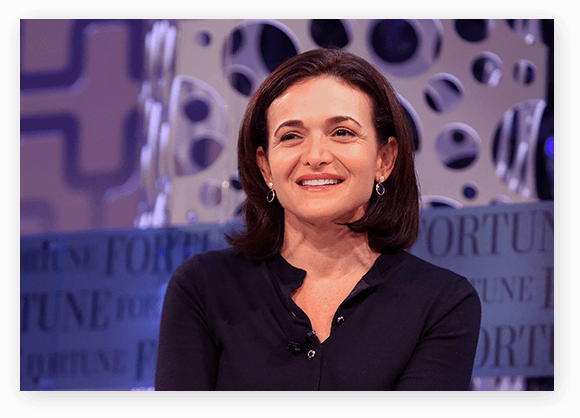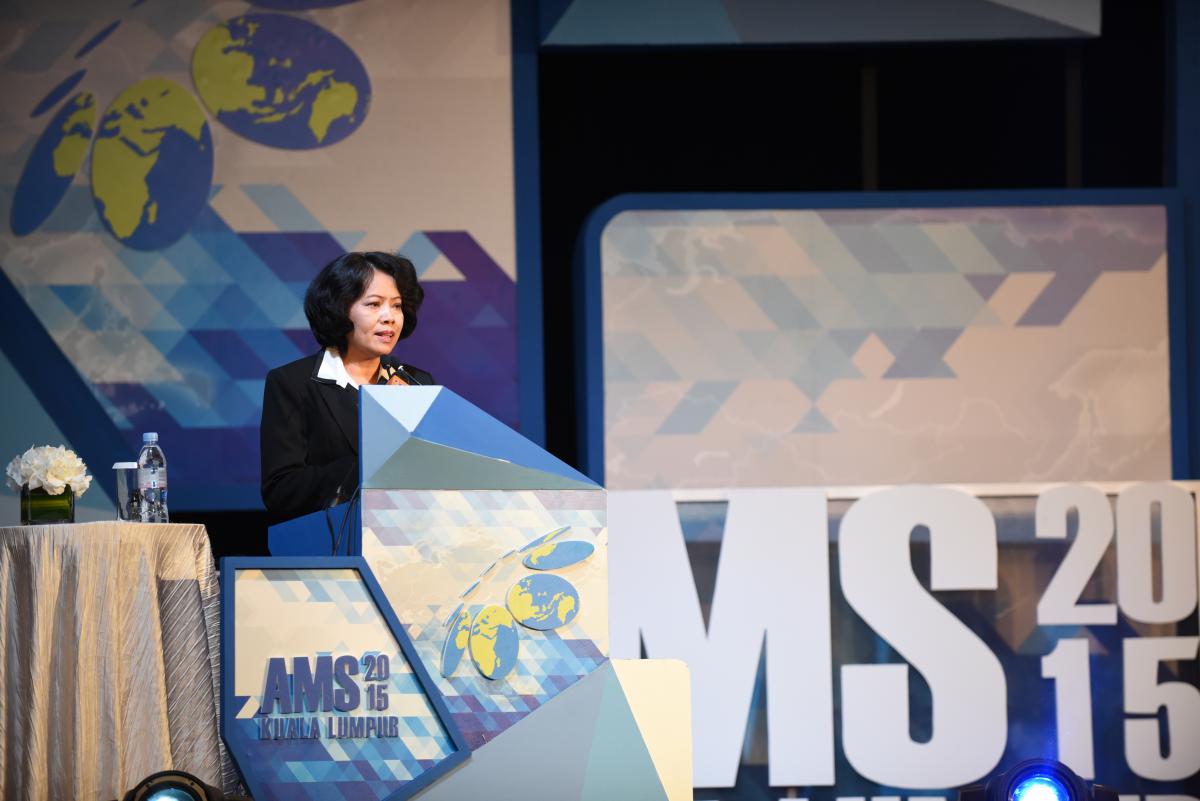Delegates are in for an exciting time with the official excursion for Asia Media Summit 2016. The excursion is organised by the hosts Ministry of Science, ICT and Future Planning (MSIP) and National IT Promotion Agency (NIPA) in cooperation with local partners Incheon Tourism Organization, Incheon Metropolitan City and the Korea International Broadcast & Audio Equipment Show (KOBA).
The first part of the excursion is the Incheon MICE Theme Tour. AMS delegates will leave at 1830 on Wednesday, 25 May 2016 from the Sondo Convensia Gate 2. Participants will be given a tour of the IFEZ PR Center showing state-of-the-art project of the Incheon Economic Free Zone.
Following this, participants will be taken to the newly opened Hyundai Department Store, the country’s first ever premium department store built in the center of the city. Please note that the maximum capacity for the excursion on 25 May is 60 participants, and the spaces are reserved on a first-come first-served basis based on those delegates who register early.
The second part of the excursion takes place on Thursday, 26 May 2016. Delegates are expected to leave their respective official AMS hotels (Oakwood Premier and Orakai) at 0800, and are requested to be in the lobbies no later than 0745.
Delegates will first be taken to the 26th Korea International Broadcast & Audio Equipment Show, one of the largest media exhibitions in the region, held at the COEX Center in Seoul. Following a short seminar session, delegates will be free to tour the exhibition in the morning. Lunch will be served for all delegates at 1300 in Room 402. After this, those delegates needing to depart later in the evening will be taken to the Incheon Airport, while the remaining delegates will be given an extended tour of Seoul, including the Gueongbokgung Palace and The National Folk Museum of Korea. The tour will arrive back at Incheon around 1930.
For more details on the excursion and registration, please visit www.aibd.org.my/ams or inquire directly at the AMS registration desk at the venue upon arrival.
Exhilarating Excursion for all AMS 2016 Delegates
Delegates are in for an exciting time with the official
AMS 2016 – Speakers & Bio
.tftable {font-size:12px;color:#000000;width:100%;border-width: 1px;border-color: #729ea5;border-collapse: collapse;} .tftable th {font-size:12px;background-color:#acc8cc;border-width: 1px;padding: 8px;border-style: solid;border-color: #729ea5;text-align:left;} .tftable tr {background-color:#ffffff;} .tftable td {font-size:12px;border-width: 1px;padding: 8px;border-style: solid;border-color: #729ea5;text-align:center; vertical-align:middle;} .tftable tr:hover {background-color:#ffffff;}
Kind and Urgent Reminder AMS 2016
- AIBD is pleased to announce that the official venue of Asia Media Summit 2016 will be theSongdo Convensia (Convention) Center. The Convensia is located in Songdo IBD, Songdo International City, Incheon Free Economic Zone, Incheon.
- AMS 2016 Registration Deadline
The deadline for AMS 2016 registration is Friday, 15 April 2016 which is approaching fast. If you have not done this, please register online as soon as possible at the link here. We are asking for registration by the deadline for logistical purposes.
- AMS 2016 Hotels Registration Deadline
The official hotel for AMS 2016 delegates will be the Oakwood Premier Incheon Hotel, while the satellite hotel will be Orakai Songdo Park Hotel, both located at a close walking distance to the Songdo Convensia (Convention) Center.
Please note that self-funded bookings must be made directly with the respective hotel.
Discount rates for Oakwood Premier Incheon Hotelare available until midnight of Sunday, 17 April 2016 using the special promo code,which you will see after the online registration process is complete. From 18 April 2016 standard rates apply!!!
For full information on the room rates for both Oakwood Premier Incheon Hotel and Orakai Songdo Park Hotel, please register online at the link here.
AMS 2016 Online Registration
The Online registration for the Asia Media Summit (AMS) 2016, to be held from 24 to 26 May 2016 in Incheon, Korea is now officially open. Please register using the link here.
Online Registration for AMS 2016
The online registration for the AMS 2016 will open on 1st March 2016. The AMS will be held in Incheon, Korea from 24 to 26 May and the Pre-Summit Workshops from 22 to 23 May.
The details of the AMS venue and hotels will be announced soon.
See you in Incheon, Korea.
Winners Awarded at the Asia Media Summit 2015
‘Pagbangon’ from Philippines and ‘Extreme Weather’ from Australia won the World Television Awards 2015 under Humanity and Science / Environment categories, respectively.
Korea to host AMS 2016
Korea promises that the next Asia Media Summit to be held in Seoul from 24 - 26 May 2016 will be a fruitful, exciting and meaningful event.
Delivering Great Social Media Experiences
Laura-May Coope, Co-founder and Manager of Social Life, BBC, United Kingdom, urged radio broadcasters to derive maximum benefits from social media by inviting their listeners and fans in making them feel special and valued, creating emotional connections, and offering them rewards.
Big Challenges for Broadcasters
Dato’ Sri Ahmad Shabery Cheek, Minister of Communications and Multimedia of Malaysia, raised the possibility that viewers might stop watching TV in the traditional sense unless broadcasters dealt seriously with new trends impacting their industry, among them; the rising popularity of over-the-top or OTT services, the reach and influence of social media, and evolving media consumption behaviour.
AIBD President Urges Broadcasters to Embrace Social Media
The 12th Asia Media Summit formally opened on 26 May 2015 in Kuala Lumpur, Malaysia, focused on the important role social media plays in transforming broadcasting into a stronger platform fit for now and the future



